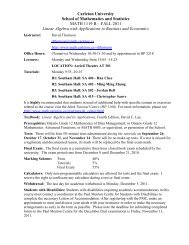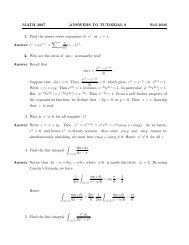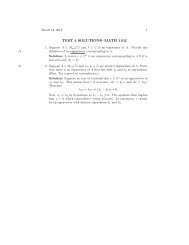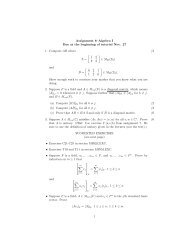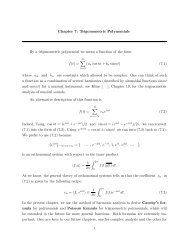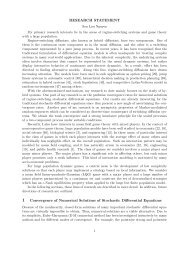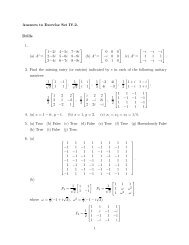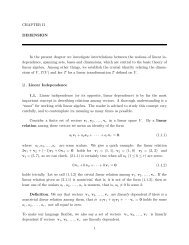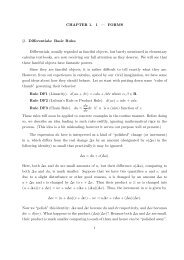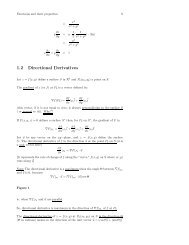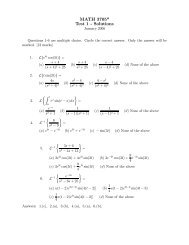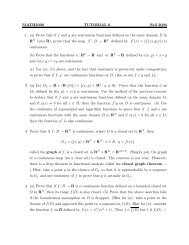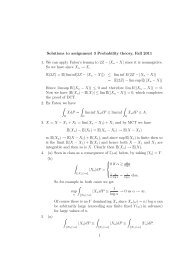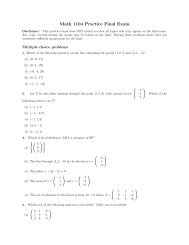TEST 1 SOLUTIONS–MATH 1102
TEST 1 SOLUTIONS–MATH 1102
TEST 1 SOLUTIONS–MATH 1102
You also want an ePaper? Increase the reach of your titles
YUMPU automatically turns print PDFs into web optimized ePapers that Google loves.
4<br />
/10<br />
October 10, 2012 4<br />
7. Compute the standard form of the complex number e−iπ/3 . Your final<br />
answer should not contain any trigonometric functions.<br />
Solution: By definition<br />
e −iπ/3 = e i(−π/3) = cos(−π/3) + i sin(−π/3) = 1/2 − ( √ 3/2)i<br />
Grading: 2 for definition of e i(−π/3) . 2 for trigonometric identity.<br />
8. Prove by induction on n that<br />
( √ 3 + i) n = 2 n (cos(nπ/6) + i sin(nπ/6))<br />
for all integers n ≥ 1. Do not use the fact that (e iθ ) n = e inθ . You may<br />
use trigonometric identities without proof.<br />
Solution: Base case. Suppose n = 1. Then<br />
( √ 3 + i) 1 = √ 3 + i = 2( √ 3/2 + (1/2)i) = 2(cos((1)π/6) + i sin((1)π/6))<br />
and we are done.<br />
Now assume that ( √ 3 + i) n = 2 n (cos(nπ/6) + i sin(nπ/6)).<br />
For the induction step we must prove<br />
( √ 3 + i) n+1 = 2 n+1 (cos((n + 1)π/6) + i sin((n + 1)π/6)).<br />
( √ 3 + i) n+1 = ( √ 3 + i) n ( √ 3 + i)<br />
= (2 n (cos(nπ/6) + i sin(nπ/6))) (2(cos(π/6) + i sin(π/6)))<br />
Here we have used the induction assumption and the base case. We continue<br />
with<br />
= 2 n+1 (cos(nπ/6) + i sin(nπ/6))(cos(π/6) + i sin(π/6))<br />
= 2 n+1 (cos(nπ/6) cos(π/6) − sin(nπ/6) sin(π/6)<br />
+i(cos(nπ/6) sin(π/6) + sin(nπ/6) cos(π/6)))<br />
= 2 n+1 (cos((n + 1)π/6) + i sin((n + 1)π/6)).<br />
We used the identities for adding angles in cos and sin in the final step.<br />
Grading: 2 for proof of base case. 1 for induction assumption. 1 for<br />
statement of induction step. 2 for correct use of induction assumption in<br />
induction step. 4 for remaining proof of induction step.



